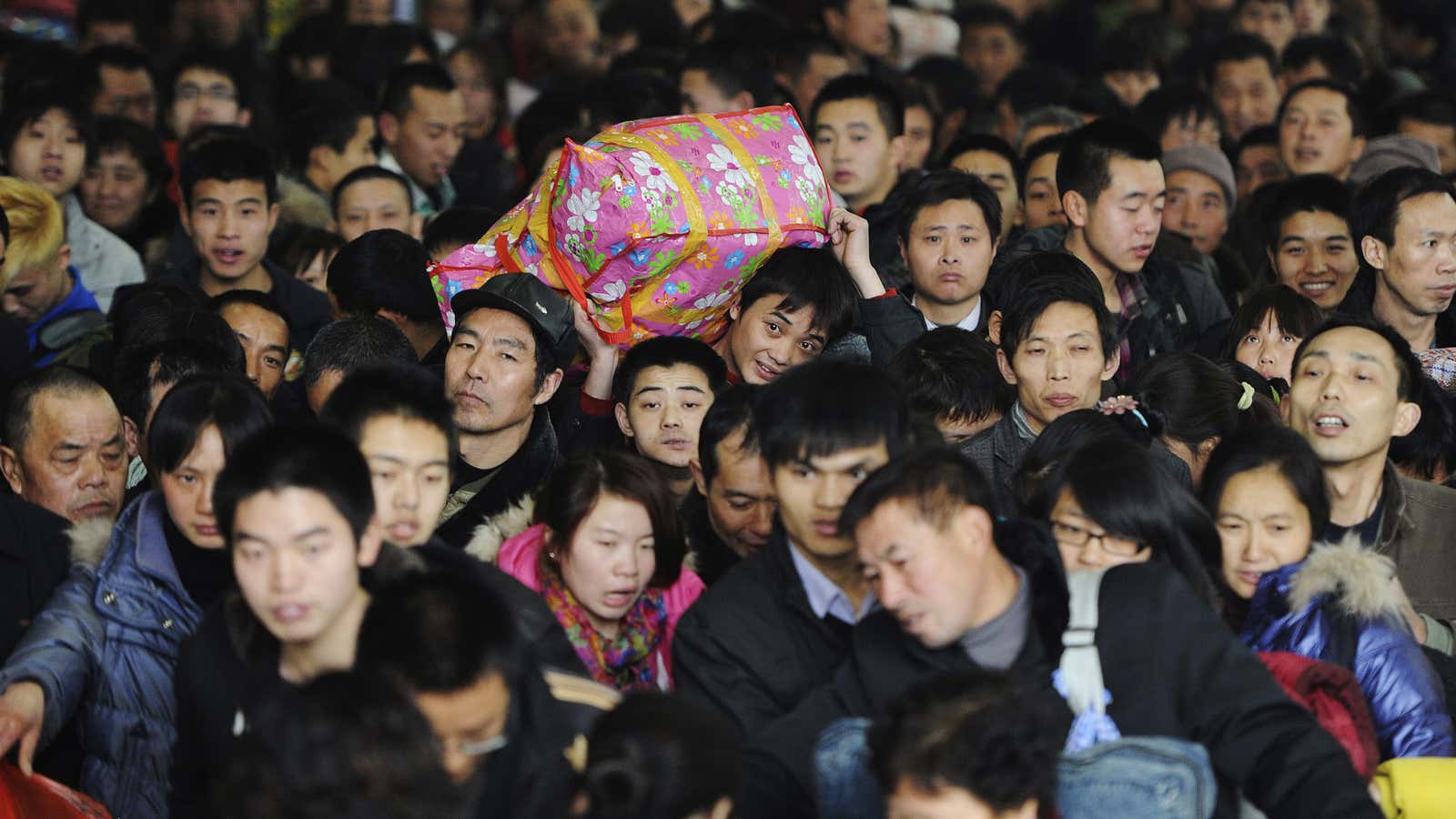Each winter in China, more than 220 million people board trains to return home for Spring Festival (the Chinese New Year, which is on Jan. 31 this year). It’s the biggest single human migration on earth. Despite the billions of dollars the government has spent on its railways, trains only have the capacity to handle 10% of the travelers. Tickets are harder to get and more expensive each year.
This year those left ticketless will likely have scalper bots to thank for it.
When tickets for Chinese New Year Eve go on sale on Jan. 11 on 12306.cn, the government’s official website for train tickets, customers will have to compete with scalpers who make bulk purchases to buy up tickets. Since tickets for mid-January went on sale in late December (link in Chinese), a single scalper could buy 1,245 tickets within 10 minutes (link in Chinese). Tickets for most routes, which are usually around $40 round-trip, sold out within minutes of going on sale (link in Chinese). Scalpers will make a killing: When 220 million people need to travel thousands of miles to get home, demand for train tickets tends to be rigid. They charge as much as hundreds of yuan per ticket (link in Chinese) for commission.
After years of dealing with this deficient system, the Chinese public is understandably outraged. Only in 2011 did the railway regulator finally begin allowing 12306.cn to accept online bookings for non-high-speed rail travel. The site cost more than 529 million yuan ($83 million) to launch, but it barely worked. Some customers reported that buying a ticket took an entire day due to slow page loading. And since the site’s programmers didn’t think to prevent bulk-buying, in the last couple years scalpers have made a killing (paywall) when they bought out all the tickets and sold them to desperate customers at exorbitant prices. This year, the railway regulator upgraded the site to foil bulk-buyers—only to be outsmarted by bots.
Despite its staggering incompetence, the railway regulator has consistently blocked third-party efforts to make buying tickets easier. In Sep. 2013, the government blocked browsers offered by Google, Kingsoft, and Qihoo 360 that automated the online queues that customers have to wait in, reports Tech in Asia. Chinese media report that just before Spring Festival in 2013, “strange men” appeared at the home of a Beijing-based software developer instructing him to delete a ticket-buying plug-in he’d made (it automated parts of the ticket-buying process), saying “it’s not fair to other people.”
Of the 235 million or so tickets that sell during Chinese New Year, a good portion of them will be sold in person, not online. But even without the attack of the bots, seats on the most popular routes would likely already have sold out except for the most uncomfortable (“standing room” tickets go for around $25, but they guarantee agony given that some train routes take more than 24 hours).
Some who can’t get their hands on regular train tickets can cough up the extra cash needed to buy high-speed rail ($136) or expensive air tickets. But many can’t. Particularly migrant workers, who make up the vast majority of travelers during “chunyun,” as the migration’s called. To them, the difference in fare is around the equivalent of a week’s wages, as Time reports. But since few have access to computers—let alone the spare time to navigate the notoriously buggy site—they’ve struggled to compete with online ticket buyers in the last few years.
